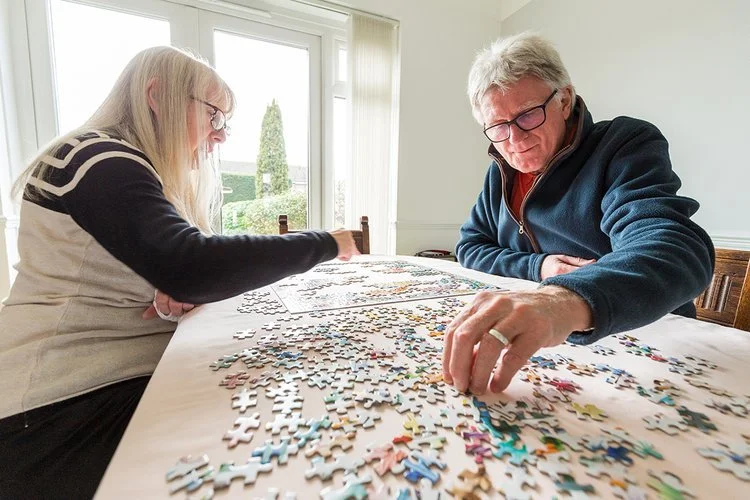The Road to Recovery
Dear Caregivers,
Hello, and I hope you and your family are safe and well after a very challenging week!
As the aftermath of Ian leaves us all a little soggy and suffering from “Hurricane Brain,” as one of our navigators calls it, it’s time to explore how we can best turn to some “recovery” practices to get ourselves back. As elite athletes will tell you, the “recovery” part of training is just as important as the training itself. It gives the body a chance to rebuild, make new connections, and grow stronger.
In my view, Family Caregivers are the "elite athletes" of caregiving, always pushing themselves to maximum performance and ready to do what is needed for the team. Add to that the specter of a major hurricane hitting our shores and I am sure everything was just a bit more difficult for you over the past few weeks.
So, now it’s your turn to recover! Here are a few ideas:
Nine Simple Habits That Can Boost Your Brain Power
New research suggests that there are things that can be done to add to your brainpower. Regular exercise, social interaction, and a healthy diet are crucial. But so is doing familiar things in unfamiliar ways. Disrupting routines can stimulate new nerve cells to create new activities. Cognitive exercise also enhances blood flow and increases the production of chemicals called neurotrophins that protect brain cells. There are many ways this can be done; here are some suggestions.
Chair Exercises for Fitness
It’s time to get moving! Science tells us that exercise can help you and your loved one increase circulation, improve blood supply to the joints, help your posture, and decrease the risk of injury. Best of all, you can do these simple exercises while you are sitting down! This is a perfect 5–10-minute activity that can help you "recover" even if time is limited.
Strategies to Reduce Caregiver Anxiety:
It’s important to understand that anxiety is triggered by physical reactions to stress signals the body receives. In response to a stressful situation, the heart rate and blood pressure increases, breathing increases, and the palms can get sweaty. You may feel jittery, like you have a tremor, and/or lightheaded or dizzy. The first step to take if you are feeling anxious is to break the cycle of the stress response. Try these techniques.
Remember, if you can’t find the information you need on our website, you can always “Ask NAN” by clicking on this link.
Best,
Rosemary D Laird, MD, MHSA
Founder and Chief Medical Officer
“Trauma creates change you don’t choose. Healing is about creating change you do choose.”
— Michelle Rosenthal




